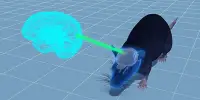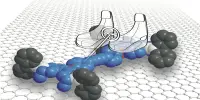Transcranial brain stimulation has been demonstrated to be effective in treating a wide range of neurological illnesses, from Parkinson’s disease to depression, and a growing body of research indicates it could be a powerful tool in the fight against these conditions. Recently, fresh research raised the possibility that non-invasive transcranial electrical stimulation can improve older persons’ memory for a month, with potentially profound implications for how healthcare might address age-related memory deterioration (or even boost your brain ready for an exam).
The study, conducted by Boston University researchers, was released in Nature Neuroscience.
The paper employed various frequencies of electrical stimulation in these areas to determine if it improved the various memory types, building on earlier studies that imply working memory (short-term memory) and long-term memory are controlled by separate areas of the brain.
The researchers selected 150 seniors 65 and older to participate in the challenge of recalling 20 words while having transcranial alternating current stimulation applied to their brains continuously. In order to boost working memory, low frequencies were sent to the inferior parietal lobe while high frequencies were delivered to the front of the brain’s dorsolateral prefrontal cortex.
The procedure was repeated over the course of four days. Results examined how well participants could recall items from the beginning of the list (long-term memory) and from the middle of the lists, which was designed to test both types of memory (working memory).
Over the course of the four days, participants’ memory improved, especially in those who started out with the lowest scores. One month later, these enhanced results could still be evaluated, indicating the therapy may have some longer-lasting effects. The memory of the participants in the control group who received placebo stimulation did not improve.
Ines Violante, a neuroscientist at the University of Surrey, comments in a statement to Nature that “their results look extremely promising.”
They genuinely made use of the body of accumulated knowledge in the sector.
The study’s methodology seems to be distinctive because it delivers the stimulation across a number of days instead of just one, as was the case in earlier investigations. Experts in the area have praised the outcomes, but it is yet unclear how long-lasting the benefits will be and what potential applications the therapy may have.
Now, the team wants to explore the technique more to determine if it can affect neurodegenerative diseases.
















